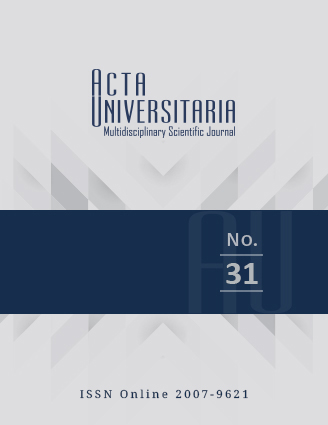DATOS GENERALES
Nombre: Jeremy Heald
Correo electrónico: healdj59@gmail.com
Móvil 473 120 0937
ESCOLARIDAD
Formación Académica
GRADO
DISCIPLINA
INSTITUCIÓN
AÑO DE OBTENCIÓN
Certificación
PMP Gerenciamiento de Proyectos
Project Management Institute
2018
Diplomado
Asociaciones Público- Privadas para el Desarrollo de Infraestructura y Servicios
Instituto Tecnológico de Monterrey
2013
Doctorado
Evaluación de Programas Sociales
University of Manchester
2009
Especialización
Evaluación Social de Proyectos
Universidad Autónoma de Guadalajara / CEPEP, Banobras
2001
Maestría
Desarrollo Económico
University of Manchester
1994
Maestría
MBA
University of Manchester
1992
Licenciatura
Antropología Social y Geografía Humana
London University Goldsmiths’ College
1983
EXPERIENCIA PROFESIONAL
- 2008 – 2012 DIRECTOR, División Ciencias Económico–Administrativas, Universidad de Guanajuato-Guanajuato, México.
- 2004 – 2008 DIRECTOR, Escuela de Economía, Universidad de Guanajuato-Guanajuato, México.
- 1994 hasta la fecha - PROFESOR/INVESTIGADOR DE ECONOMÍA a tiempo completo, Departamento de Economía y Finanzas, Universidad de Guanajuato-Guanajuato, México.
ENSEÑANZA
Cursos nivel maestría, licenciatura y diplomados en: Diseño y Evaluación de Proyectos Públicos y Privados de Inversión, Emprendimiento y Gerenciamiento de Proyectos, Formulación y Evaluación de Proyectos del Sector de Agua, Desarrollo Económico, Globalización Económica, Desarrollo de Proyectos del Sector Turístico, Economía Internacional Básica, Economía Básica, Problemas Contemporáneos de la Economía Mexicana.
LÍNEAS DE INVESTIGACIÓN
- Evaluación Costo beneficio de Proyectos de Inversión
- Evaluación de Programas Sociales
- Desarrollo Económico y Turístico
- Emprendimiento Privado y Social
PUBLICACIONES RECIENTES
- Heald J., Viianto L. (2019), “How to do Entrepreneurship Programs in Mexico. Which Beneficiaries, Support Packages and Projects?”, Academy of Entrepreneurship Journal, 25(3), 1-22.
- Heald J. (2019), “Value for Money in Mexico? Including the Missing Risks in Infrastructure Project Evaluation”, International Journal of Economics and Financial Issues, 9(4), 60-73.
- Heald J. (2018), Guerrero-Rodríguez R., Treviño-Aguilar E., “Análisis de los Procesos y Ciclos Inherentes a la Seguridad Turística en el Contexto de México a través de una Revisión Literaria”, Universidad Anáhuac, Oaxaca, Transitare, 4(2), 1-26.
- Heald J. (2018), “Un Enfoque de Indicadores para Analizar el Desarrollo del Estado de Guanajuato”, en libro El Índice de Desarrollo Humano. Estimación con Datos de la Encuesta Intercensal 2015 del INEGI, editado por Universidad de Guanajuato, Secularte A.C., 23-59.
- Heald J. (2018), Del IDH al Análisis Geográfico del Desarrollo Desigual a Través de un Paisaje de Indicadores, Acta Universitaria. 28, 35-49.
- Treviño-Aguilar E., Heald J., Guerrero-Rodríguez R. (2017), “Análisis de competitividad y movilidad en destinos turísticos del Estado de Guanajuato a través de un modelo de regresión logística”, Caderno Virtual de Turismo, 17(1),105-122.
- Heald J., Guerrero-Rodríguez R. (2016), “Diagnóstico de Competitividad y Sustentabilidad de Ciudades Patrimonio de la Humanidad y de la Ciudad de León del Estado de Guanajuato” en libro digital Competitividad de Destinos Turísticos. Casos de Investigación Aplicada en México, Universidad Autónoma de Chiapas. 15-73.
- Treviño-Aguilar E., Heald J., Guerrero-Rodríguez R. (2015), “Un Modelo del gasto con factores sociodemográficos y de hábitos de viaje en Pueblos Mágicos del Estado de Guanajuato, México”, Investigaciones Turísticas, 10, 117-149.
- Heald J. (2013), “Desarrollo Rural Decentralizado y Reducción de la Pobreza en México: ¿Economía Solidaria es la Respuesta?, Universidad de Guanajuato; primera edición.
- Heald J. (2012), “Decentralized Rural Development and Poverty Reduction in Mexico: Is “Solidarity Economy” the Answer? Universidad de Guanajuato; segunda edición.
- Heald J. (2011), “Economía Solidaria: ¿Nuevo Paradigma de Desarrollo Rural Sustentable Decentralizado?”, Memorias, Primer Foro Internacional Interdisciplina y Espacios Sustentables, Campus Guanajuato, Universidad de Guanajuato, México.
PROYECTOS APLICADOS RECIENTES
- “Red Estatal de Evaluadores de Políticas Públicas, Cliente – IPLANEG, 2017/2018, Participación
- "Diagnóstico de la estructura de seguridad orientada al turismo en México”, Cliente – Conacyt, 2016/17, Participación
- “Diseño de estrategias para la evolución positiva de los componentes del IDH, Cliente – Concyteg – SEDESHU, 2016, Participación.
- “6th Workshop Tourism and Transport Economics: Tourists as Consumers, Visitors and Travelers”, Cliente – Universidad de Guanajuato, 16-18 de Septiembre, 2015. Coordinador del evento
- “Evaluación de Resultados y Sobreviviencia de Proyectos que Fomentan el Emprendidurismo, Apoyados por el Programa Impulso a la Economía Social Sustentable de la SEDESHU”, Cliente – Concyteg - SEDESHU, 2015. Coordinador del proyecto
- “Diagnóstico de Competitividad y Sustentabilidad de los Pueblos Mágicos del Estado de Guanajuato”, Cliente – SECTUR Guanajuato, SECTUR Federal, 2014. Coordinador del proyecto
- “Diagnóstico de Competitividad de las Ciudades de la Humanidad Patrimoniales de Guanajuato y San Miguel de Allende y la Ciudad de León, Guanajuato” (Agendas de Competitividad), Cliente – SECTUR Guanajuato, SECTUR Federal, 2013/2014. Coordinador del Proyecto
- “Estudio de Factibilidad y Análisis de Resultados Previos para el Corredor del Istmo de Tehuantepec”, Cliente – GERINPRO S.C. y GOBIERNO DEL ESTADO DE OAXACA, 2013. Participación
- “Libramiento Sur de Oaxaca” (Evaluación Social), Cliente – GERINPRO S.C. y GOBIERNO DEL ESTADO DE OAXACA, 2013. Participación
- “Diplomado en Evaluación Social y Gestión de Proyectos”, Cliente – SECRETARÍA DE EDUCACIÓN PÚBLICA DEL ESTADO DE GUANAJUATO, 2012. Participación
DISTINCIONES
- Reconocimiento a Perfil Deseable PROMEP desde 2010.
- Miembro del Sistema Nacional de Investigadores (Candidato) desde 2020.
- Presidente del jurado del "Premio Nacional Tlacaélel de Consultoría Económica", para tesis de economía, 2010/2011, y miembro del jurado de 2008 a 2019.


